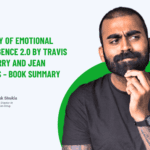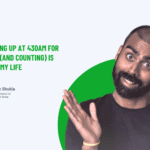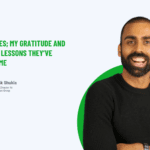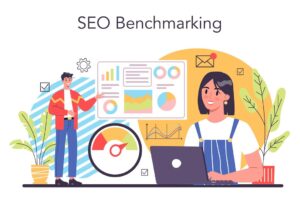Hi guys,

Every day I try and read for 30 minutes at 2-2.2x speed so I ensure that I can keep learning new things and bettering myself.
I’m trying to (and it’s becoming) a ritualistic part of my day to get this learning in.
Any day that goes by without this happening feels somewhat incomplete.
I don’t feel like I’ve bettered myself, and become 1% better (or more likely 0.1% better) than the person I was yesterday.
And then every now and again, you come across a book that feels seminal.
It’s so ground-breakingly new/different for you – then you can’t get through more than pieces of it at a time because the book feels seminal.
The more you read, and as your knowledge begins to widen and deepen – the less often this happens to you.
But then again, there are many books and it’s a big world with many writers, so the books will keep coming.
If you’re a business owner in search of ways of becoming better and better at what you do – then this is a book I truly recommend –
Dotcom Secrets by Russel Brunson. It’s part of a trilogy that is easily worth 100x the £6.99 (one Amazon credit) I paid for all three of them.

I still have strong memories of reading Expert Secrets by the same author and that is a book I will read again right after finishing this book (which will take its time).
Ultimately (and I’m only 2 hours into a 6 hour 40-minute book) – this book will teach you timeless secrets as to how to build sales funnels that work.
It’s so different from any of the dross you will read online. It’s SO much more sophisticated than any guide you can read from a landing page builder, or ad expert of any of those pieces.
This book deals in timeless strategies that have their roots in cinema, storytelling and direct response copywriting – all of which have been around for at least a hundred years.
Right now I’m at a particular point in the book that gave me cause to literally stop and start writing this blog because of the energy and rush of ideas it brought forth.
Let’s try and go through them as best as I can –
And like me, I’d like you to think about this in the context of your business and what it means for its growth.
How many of you are weaving personal stories into your company narrative?
Let’s be honest – does loyalty come from excellent results alone?
On any given day if there is opportunity to get excellent results and no allegiance or relationships Vs really good results and a compelling personal story who do you stick with?
This is of course when you’ve already landed a client.
Let’s then assume the results in both examples are the same.
Who do you then go with? (a rhetorical question of course)
But then even more powerfully – what about the pre-sales process?
If you’re able to build a moving personal story into every element of your company brand – what is it that individuals and other companies are more likely to buy into?
Just as with dating, one company wishes to work with another company it is attracted to – and beyond the obvious elements that most of us will adhere to:
· Company branding
· Company expertise
· Company social proof
· Personal branding
· Personal expertise
What about making yourself an attractive company?
An attractive individual?
What do you think any company that works with you will identify with most?
It’s not the answer that you think.
The answer is both.
It pays to have your personal origin story woven into the fabric of your company.
It pays to have stories that your ideal prospect can identify with woven into every element of your advertising.
Making this story emotional is also critical.
It gave me a big realisation.
A common question people will ask is ‘Why I started Pearl Lemon?’ And after going underneath the mechanical and perfunctory answers of ‘right timing’, ‘right skill set’ and being ‘opportunistic’ which in some ways may answer the question…
They don’t answer the why?
Why really this?
Why this and not something else?
And that’s where having an emotional founder-led story answering the ‘why’ behind you started something comes into the fore.
This blew my mind when thinking about what attracts me to working with a company – it’s almost always its people – who they are and what they stand for –
And here’s the important part.
We will all buy products and services from businesses we NEVER pay attention to at a personal level.
Rather they solve a specific problem we have and therefore they’re part of our stack.
(I’ll come back to this in a moment).
However, when I find founders or people that inspire me, I identify with, or make me feel a certain way – I’ll follow them for who they are, and build allegiance and…
LOYALTY.
I will stay with them through thick and thin even in the face of seemingly superior alternatives because of how they make me feel.
And now that I’m saying this – I hope it in some way answers the real truth behind products and services that you stick with where you never take a look at them personally.
At some level (the Macbook I own Is a great example) we do make emotional decisions based upon the products we own.
Russel Brunson then goes on to take it one step further – and this was also the concept that I have in no way implemented within my business (probably because of the size of the undertaking) –
Attractive Character Elements.
This is the concept of you/there being an attractive character which is used across all parts of your narrative.
This is about positioning.
The problem with most company positioning (including Pearl Lemon by the way) – is that it all looks cookie cutter – i.e everyone looks the same as each other.
If you trawl through the websites of your competition – are they fundamentally all not rehashing a different version of the same thing?
So Dotcom secrets talk about the power (in my view) of personal differentiation.
At Pearl Lemon we’re already trying to do this with pages centred around ‘Why Us’ and more specifically ‘Why Us Versus Other Agencies’ and ‘Why Deepak Shukla Versus Other Marketers’ – i.e to set up some specific comparative examples.
Upon getting only 2 hours into Dotcom Secrets I feel this path is potential to be reactionary and divisive alone.
What it lacks is the elements that Russel feels need to be apparent in every company story – which are as follows:
That you must have a backstory and share it often (what is this story, is it emotionally compelling, is there some bigger universal emotion that’s pegged to it).
You must also keep in mind that people will not care about you nor follow any advice you wish to dispense unless they know for certain you’ve been where they are now.
Vulnerability must be at the heart of the story – because this is a very human emotion and can champion others to your cause.
And that when building your marketing, sales and communication literature – that the best stories are told in the form of parables
The most successful fictional book of all time is filled with them:

Reading this from Russel Brunson – I think is an absolute game-changer when it comes to how to think about your business.
How to think about how to position your business.
When it comes to thinking about how to build out ANY level of literature in your business.
In the year of 2020, I read around 60 books – so just over 1-per week.
And I have got several book reviews about some of the other seminal books which have been instrumental to me.
This is definitely one that is causing me to think about how I’ve shaped my business, and how I’ll continue to adapt this as time passes.
Equally, I hope it causes you to consider how it reframes every business story you build, as well as of course – your own story.
For all of these reasons then – I think this is one of the best business books I’m only part way through reading 😛







